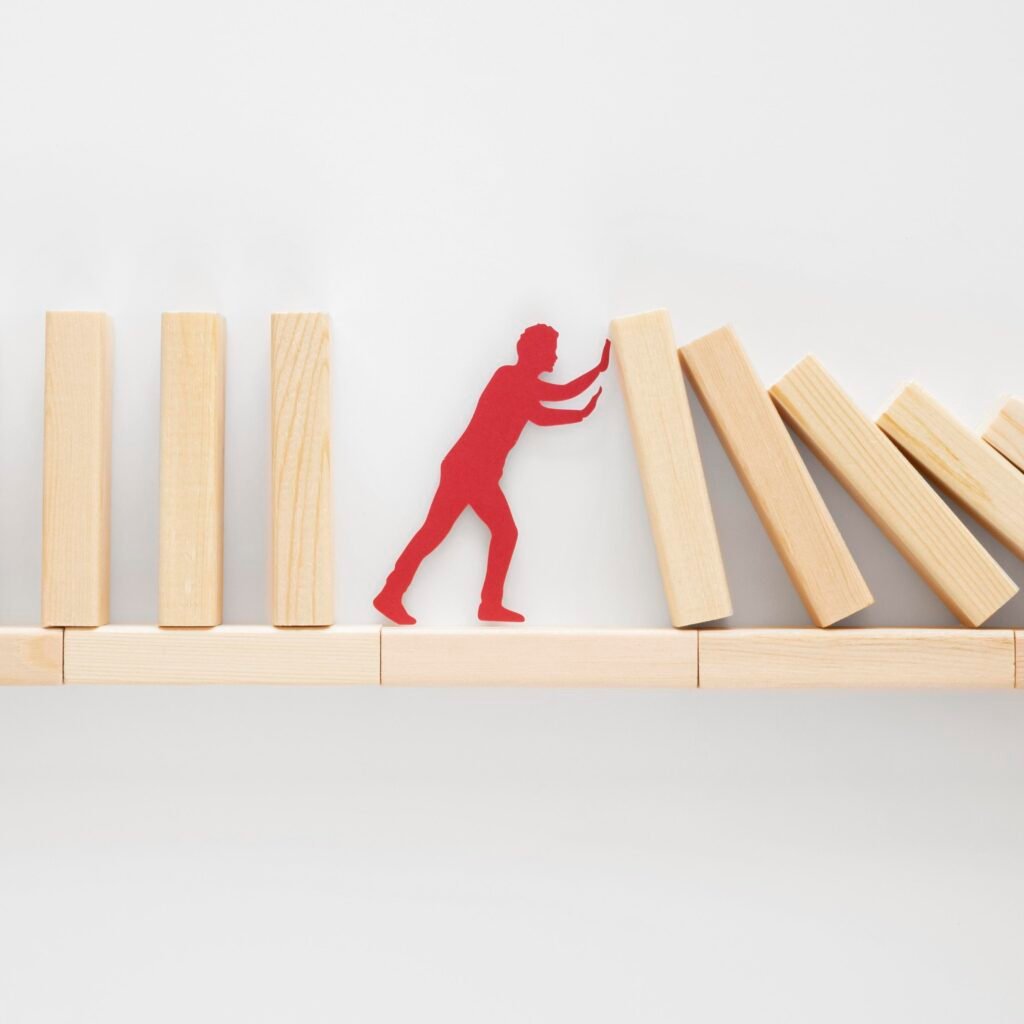
In today’s modern society, stress has seamlessly woven itself into the fabric of everyday existence, creeping into even the most mundane aspects of life. From the moment we wake up to the cacophony of alarms and notifications, to the relentless demands of work, family and personal responsibilities, stress lurks around every corner, ready to pounce at the slightest provocation. It manifests in various forms – the intense anxiety of looming deadlines, the suffocation of financial burdens, the heart-wrenching turmoil of strained relationships. Regardless of its origin, stress has a tremendous hold on our mental and physical well-being, overshadowing our ability to navigate the complexities of existence with grace and resilience. Without a trace, its insidious tendrils can penetrate every aspect of our being, draining our vitality and ending our lives. Yet, amidst the chaos and turmoil, there is a ray of hope – a ray of light that lights the way to peace and balance. With the right strategies and techniques, we have the power to withstand pressure, wrestle into submission, and come out victorious on the other side. Through diligent practice and unwavering determination, we can build a reservoir of resilience, fortifying ourselves against the onslaught of life’s myriad challenges. By nurturing our mental and physical well-being, by embracing the transformative power of self-care and self-awareness, we can create a path toward a brighter, more vibrant existence. In the pursuit of stress management, we embark on a journey of self-discovery and empowerment, charting a path toward a future filled with peace and fulfillment.
Understanding stress:
Stress is a natural mechanism hardwired into the human body, a primal response designed to navigate the treacherous waters of difficult situations. When faced with a threat or overwhelming demand, the body springs into action, releasing a flurry of hormones, including adrenaline and cortisol, to mobilize its resources for the battle ahead. This instinctive response, commonly known as the “fight or flight” response, is an important component of our survival toolkit, enabling us to face danger or quickly retreat to safety. However, while this physiological response serves an important purpose in acute situations, prolonged exposure to chronic stress can take a toll on our physical and mental health. As cortisol levels relentlessly surge unchecked and adrenaline courses through our veins, the delicate balance of our internal balance is disrupted, paving the way for many negative health outcomes. From high blood pressure and compromised immunity to susceptibility to anxiety and depression, the effects of chronic stress manifest in every aspect of our being, eroding our vitality and reducing our resilience in times of adversity.
Chronic stress is linked to a wide range of health problems, including:
- Anxiety and depression
- High blood pressure
- Heart disease
- Digestive problems
- Weak immune system
- Insomnia
- Weight gain or loss
- Cognitive impairment
Effective stress management strategies:
To effectively cope with and reduce the effects of stress, early development involves an intentional process of identification—a concerted effort to learn the sources and triggers of stress that permeate our lives. These triggers can manifest in a variety of forms, ranging from the constant pressure of work deadlines to the intense worry of financial instability. At the same time, the complex web of interpersonal relationships can serve as fertile ground for the emergence of tension-producing conflicts, while underlying health concerns cast a shadow of uncertainty over our daily operations. In this maze of stress, the act of maintaining a stress journal emerges as a beacon of clarity, offering an orderly path to introspection and self-awareness. By diligently documenting our experiences and emotions, we gain invaluable insight into the patterns and recurring themes that influence our stress responses, giving us insight into root causes and targeted strategies for resolution. Gives the power to act. Through this process of mindfulness, we lay the foundation for a journey of self-discovery and empowerment, ready to face stress with clarity and resilience.

Develop healthy coping mechanisms:
Amid the turmoil of stress, it’s important to forgo the siren call of unhealthy coping mechanisms that provide temporary comfort at the expense of long-term well-being. Rather than succumbing to the temptation to overeat, smoke, or drink excessively as a temporary relief from the rigors of everyday life, the path to sustainable resilience lies in cultivating healthy coping strategies. Is. Embracing the transformative power of physical activity, whether through dynamic workouts or a calming yoga session, offers a holistic approach to stress management, harnessing the body’s natural capacity for renewal and vitality. Similarly, meditation and deep breathing exercises serve as a haven of calm amidst the chaos, fostering a sense of inner peace and tranquility that transcends the temporary pressures of the external world. Engaging in hobbies and creative pursuits provides a welcome respite from the relentless demands of everyday life, nourishing the spirit and replenishing depleted reserves of energy and inspiration.
Practice mindfulness and meditation:
The transformative potential of mindfulness and meditation techniques in reducing stress cannot be overstated. Through the gentle art of mindfulness, we develop a deep awareness of the present moment, free from the turbulent currents of past regrets and future worries. By anchoring our consciousness in the here and now, we free ourselves from the constant chatter of the mind, taking refuge in the peace of the present moment. Similarly, the practice of meditation offers a haven of silence amidst the endless tumult of modern life, inviting us to surrender to the rhythm of our breath and the pace of our heartbeat. In this sacred space of inner peace, the burden of stress begins to melt away, to be replaced by a deep sense of peace and well-being that wells up from the depths of our being.
Set boundaries:
Learning to decline additional commitments or responsibilities when overwhelmed is an important aspect of self-care and stress management. By cultivating the ability to say no, we emphasize our limits and save our time and energy from being wasted beyond capacity. Setting boundaries is like building a fortress around our well-being, protecting it from the constant onslaught of outside demands. Without these protective barriers, we risk falling into the insidious grip of burnout, as our resources are depleted and our resilience eroded. Recognizing your limits and respecting your needs is not a sign of weakness, but an act of self-preservation. It allows us to prioritize our well-being and allocate our resources judiciously, ensuring that we have the reserves necessary to navigate life’s challenges with grace and resilience. By establishing strong boundaries and learning to say no when needed, we reclaim agency over our lives and create space for self-care and replenishment. By doing so, we create a greater sense of balance and harmony, foster deeper connection with ourselves and others, and protect our mental and emotional well-being from the damaging effects of chronic stress and burnout.

Find social support:
In times of stress, reaching out for help can be a powerful antidote to the isolation and overwhelm that often accompanies difficult situations. Whether it’s confiding in trusted friends, finding comfort in a hug from a family member, or enlisting the expertise of a therapist, being open about your feelings provides a much-needed outlet for validation. can do. By sharing our struggles with those who care about us, we not only ease the burden of bearing our struggles alone, but also gain invaluable insight and perspective that might otherwise leave us alone. The act of verbalizing our feelings can act as a catalyst for clarity and self-awareness, helping us to unravel the complexities of our inner world and to understand workable solutions to our problems. Through the supportive presence of others, we find strength in weakness, build deeper connections and develop a sense of belonging that transcends the trials of adversity. By embracing the courage to seek help when needed, we affirm our inherent resilience and capacity for growth, embarking on a journey of healing and self-discovery that enriches our lives immensely.
Practice relaxation techniques:
Incorporating relaxation techniques into your daily routine can be a powerful tool for reducing stress and promoting a sense of calm and well-being. Techniques such as progressive muscle relaxation, which involves systematically tensing and releasing different muscle groups, work to reduce physical tension and promote a deep sense of relaxation throughout the body. Similarly, guided imagery invites us to immerse ourselves in vivid mental landscapes, allowing the mind to escape the confines of everyday stress and find refuge in calm and serene realms. By incorporating these relaxation techniques into our daily rituals, we create sacred moments of respite and rejuvenation, cultivating a sanctuary of calm that serves as a refuge from the relentless demands of the outside world. Whether it’s a brief moment of deep breathing and visualization or a luxurious aromatherapy massage, these practices offer a gateway to inner peace and renewal, allowing us to navigate life’s challenges with greater harmony and grace. Gives strength.
Be organized:
The weight of clutter and clutter in our surroundings can add to the burden of stress, leaving us with feelings of chaos and anxiety. In the midst of disorder, it’s easy to feel overwhelmed by the sheer volume of possessions and responsibilities vying for our attention. Yet, by embarking on a journey of deconstruction and organization, we reclaim our environment and, in turn, our mental well-being. Begin by systematically sorting through possessions, discerning between what is essential and what can be discarded. As you clear out unnecessary items, you create physical space that promotes clarity and calmness, reducing excess mental burden. At the same time, creating to-do lists and prioritizing tasks empowers you to carry out responsibilities with purpose and efficiency, and directs your focus to what’s really important. By breaking down difficult tasks into manageable steps and following structured routines, you develop a sense of discipline that fortifies against the onslaught of stress. By embracing the discipline of organization, you create a path to greater productivity and peace of mind, navigating life’s complexities with clarity and resilience.

Nice Post
Thanks for your interest😇